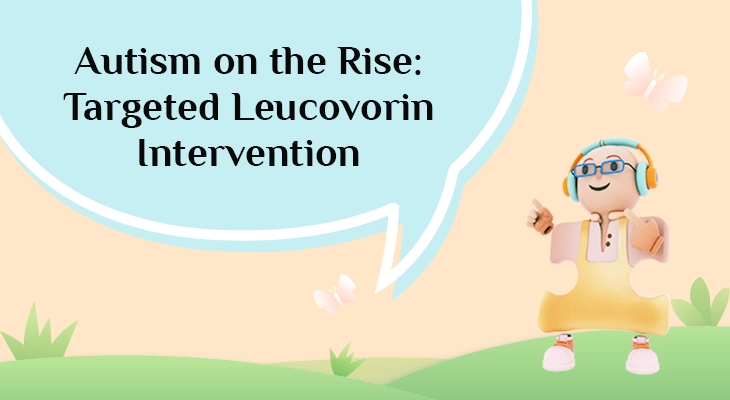
I am sure we have all heard of the word “mitochondria”. A powerful organelle for sure!
Mitochondria are essential for many fundamental processes in cells, making them vital to overall health and function. These specialized organelles found within eukaryotic cells are often described as the “powerhouses” of the cell. Their primary function is to produce adenosine triphosphate (ATP), the cell’s main energy currency, through a process called oxidative phosphorylation, which takes place in the inner mitochondrial membrane.
Mitochondria perform several important functions that include:
-
Energy Production:
- ATP Synthesis: Mitochondria are often called the “powerhouses” of the cell because they produce adenosine triphosphate (ATP), the main energy currency of the cell, through oxidative phosphorylation.
- Energy for Cellular Activities: ATP generated by mitochondria provides energy necessary for various cellular activities, including muscle contraction, nerve impulse transmission, and chemical synthesis.
-
Regulation of Metabolism:
- Metabolic Pathways: Mitochondria play a key role in metabolic pathways, including the citric acid cycle (Krebs cycle) and fatty acid oxidation, which are crucial for breaking down carbohydrates and fats to produce energy.
- Intermediary Metabolism: They are involved in the synthesis of certain hormones and the metabolism of amino acids and lipids.
-
Calcium Homeostasis:
- Calcium Storage: Mitochondria help regulate calcium levels within cells, which is important for signal transduction, muscle contraction, and maintaining the integrity of cell structures.
-
Apoptosis (Programmed Cell Death):
- Cell Death Regulation: Mitochondria are central to the process of apoptosis. They release cytochrome c and other pro-apoptotic factors that initiate cell death, which is essential for removing damaged or unnecessary cells and maintaining cellular health.
-
Reactive Oxygen Species (ROS) Management:
- ROS Production: While mitochondria produce reactive oxygen species as a byproduct of ATP production, they also contain mechanisms to detoxify these harmful substances.
- Oxidative Stress: Proper mitochondrial function is essential for minimizing oxidative stress, which can damage cellular components and contribute to aging and various diseases.
-
Regulation of Cellular Differentiation and Growth:
- Cell Cycle Control: Mitochondria influence cell proliferation and differentiation, playing a role in the development and maintenance of tissues.
- Stem Cell Function: Mitochondrial dynamics and function are crucial in the regulation of stem cell differentiation and maintenance.
-
Support for Specialized Cellular Functions:
- Neurons and Muscles: Cells with high energy demands, such as neurons and muscle cells, rely heavily on mitochondrial function for their specialized activities.
- Immune Cells: Mitochondria are involved in the activation and function of immune cells, contributing to the body’s defense mechanisms.
-
Role in Disease:
- Mitochondrial Disorders: Mutations in mitochondrial DNA or nuclear genes that affect mitochondrial function can lead to a range of mitochondrial diseases, which often impact organs with high energy demands, like the brain, heart, and muscles.
Dysfunctional mitochondria are implicated in many chronic conditions, including neurodegenerative diseases such as Parkinson’s, Alzheimer’s, metabolic disorders, and certain types of cancer.
Now what about Autism? Is there any connection here?
Mitochondria have been implicated in autism spectrum disorder (ASD) through several mechanisms and observations. Studies have found a higher prevalence of mitochondrial dysfunction in individuals with ASD compared to the general population. It seems that mitochondrial dysfunction can impair energy metabolism in brain cells, which is crucial for cognitive function, synaptic activity, and overall brain development. This makes sense as the brain utilizes a large amount of energy as compared to other organ systems.
Mitochondrial dysfunction can also lead to increased production of ROS, which causes oxidative stress and cellular damage. Elevated oxidative stress markers have been observed in individuals with ASD. Some studies suggest that individuals with ASD may have deficiencies in antioxidant defenses, exacerbating the impact of oxidative stress.
Interestingly, mutations in mitochondrial DNA (mtDNA) and nuclear DNA that affect mitochondrial function have been associated with ASD. These mutations can disrupt normal mitochondrial processes and energy production. Some cases of ASD have been linked to inherited mitochondrial disorders, where faulty mitochondrial genes are passed down from the mother.
One other connection between mitochondrial dysfunction and autism may involve certain biomarkers and metabolites. For instance, elevated levels of lactate and pyruvate in blood and cerebrospinal fluid, which are indicative of mitochondrial dysfunction, have been reported in individuals with ASD. Other metabolic abnormalities, such as altered carnitine levels and irregularities in the citric acid cycle intermediates, have also been noted.
Proper mitochondrial function is essential for neuronal development, differentiation, and synaptic plasticity. Dysfunction can lead to abnormal neural connectivity and impaired brain function, which are often seen in ASD. Mitochondrial dysfunction can contribute to neuroinflammation, which has been observed in the brains of individuals with ASD.
Symptoms of mitochondrial disorders, such as developmental delays, muscle weakness, gastrointestinal issues, and seizures, seem to overlap with those seen in ASD. There may be a connection there, and interestingly, the severity of mitochondrial dysfunction may correlate with the severity of ASD symptoms, suggesting a potential link between the two.
Research is ongoing to develop therapies that specifically target mitochondrial dysfunction in ASD, aiming to improve energy metabolism and reduce associated symptoms. Interventions such as dietary modifications and supplements (e.g., antioxidants, coenzyme Q10, and L-carnitine) are being explored to support mitochondrial function and reduce oxidative stress in individuals with ASD.
Understanding the role of mitochondria in ASD can hopefully lead to the development of novel treatments that address the underlying mitochondrial dysfunction, potentially improving outcomes for individuals with ASD.
One cutting edge test that examines mitochondrial function in the system is Mitoswab™.
MitoSwab™ is a non-invasive buccal swab-based assay that analyzes the components of the Electron Transport Chain – Complex I, and Complex IV. More information about this test is available at www.mitoswab.com



